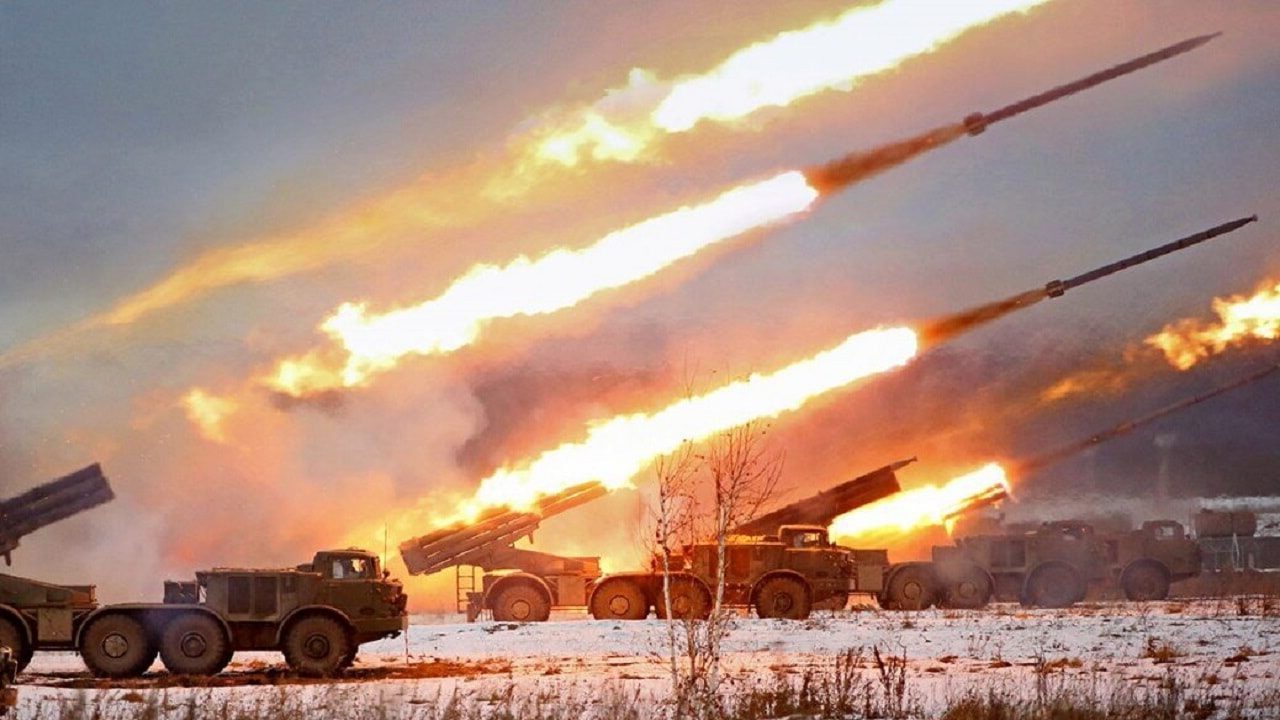Russia can’t seem to win in Ukraine’s Donbas region: On day 91 of the Russian invasion of Ukraine, the Russian military continues to search for a breakthrough in the Donbas. Russian forces are attacking Ukrainian positions in several places in an attempt to achieve a breakthrough.
The Russian military has abandoned its plans for a large-scale encirclement of Ukrainian troops in the Donbas from Izium to the north down to Donetsk in the south. Instead, Russian forces are now attempting smaller, topical encirclements.
Russian Offensives and Casualties
The Russian offensives are focused on the vicinity of Severodonetsk, Lyman, and Bakhmut, where the Russian military is trying to trap Ukrainian units in small pockets and wipe them out. That is a more feasible goal for the Russian military, which has suffered such a large number of casualties, thus raising questions about its maneuver warfare capabilities.
The narrower approach will most likely enable the Russian military to finally make some gains.
In the north, in Kharkiv, Ukraine’s second-largest city, the Russian military is trying to reclaim some places it lost to the recent sweeping Ukrainian counteroffensives that brought Ukrainian troops to the Russian border.
The Ukrainian Ministry of Defense claimed that as of Wednesday, Ukrainian forces have killed approximately 29,450 Russian troops (and wounded approximately thrice that number), destroyed 206 fighter, attack, and transport jets, 170 attack and transport helicopters, 1,305 tanks, 606 artillery pieces, 3,213 armored personnel carriers, 201 Multiple Launch Rocket Systems (MLRS), 13 boats and cutters, 2,217 vehicles and fuel tanks, 93 anti-aircraft batteries, 491 tactical unmanned aerial systems, 44 special equipment platforms, such as bridging vehicles, and four mobile Iskander ballistic missile systems, and 112 cruise missiles shot down by the Ukrainian air defenses.
Mariupol and Russian Morale
The Russian military might have captured Mariupol after almost three months of fighting, but the drama for the southern Ukrainian port city isn’t over. The Russian forces in control of Mariupol announced that they would be holding a war crimes tribunal.
“Russian occupation authorities in Mariupol announced that they will hold war crimes trials against Ukrainian soldiers in Mariupol in a likely effort to strengthen judicial control of the city and support false Kremlin narratives of Ukrainian crimes,” the Institute for the Study of War stated.
Reports about growing dissatisfaction within the Russian forces continue to grow. It is no secret that morale is pretty low within the Russian ranks and file. Successive failures and extremely high casualties have created dissatisfaction and disillusionment among the average Russian troop. Pro-Russian forces are also experiencing bad morale. Videos from units from the so-called Donetsk People’s Republic (DNR), one of the two pro-Russian breakaway provinces in eastern Ukraine, are circulating online, showing the troops’ dissatisfaction with their leadership and the war.
“Several DNR servicemen openly released a video appeal to DNR leader Denis Pushilin stating they have been forced into combat operations without proper support, indicating increasing demoralization among Russian and proxy forces,” the Institute for the Study of War stated.
Odesa, Ukrainian Grain, and Russia’s Blockade
In its daily estimate of the war, the British Ministry of Defense focused on the Russian blockades of Ukrainian ports. Ukraine is one of the largest agricultural producers and exporters in the world. Ukrainian grain is used to feed millions of people across the globe, and the Russian invasion has jeopardized that process and is threatening millions, especially in Africa, the Levant, and the Middle East, with starvation.
“There has been no significant merchant shipping activity in or out of Odessa since the start of the war. Russia’s subsequent naval blockade of key Black Sea ports has deterred the commercial shipping industry from operating in the area,” the British Ministry of Defense assessed.
Meanwhile, Ukrainian land export capacity is inadequate to support the moving of such a large-scale production. As a result, besides the threat of starvation for millions, grain prices are expected to increase even more.
“Ukraine’s overland export mechanisms are highly unlikely to substitute for the shortfall in shipping capacity caused by the Russian blockade. As a result, significant supplies of Ukrainian grain remain in storage unable to be exported. Fighting has already placed indirect pressure on global grain prices. While the threat of Russia’s naval blockade continues to deter access by commercial shipping to Ukrainian ports, the resulting supply shortfalls will further increase the price of many staple products,” the British Military Intelligence assessed.
Moscow is open to an arrangement if the West lifts the sanctions.
1945’s New Defense and National Security Columnist, Stavros Atlamazoglou is a seasoned defense journalist specializing in special operations, a Hellenic Army veteran (national service with the 575th Marine Battalion and Army HQ), and a Johns Hopkins University graduate. His work has been featured in Business Insider, Sandboxx, and SOFREP.

